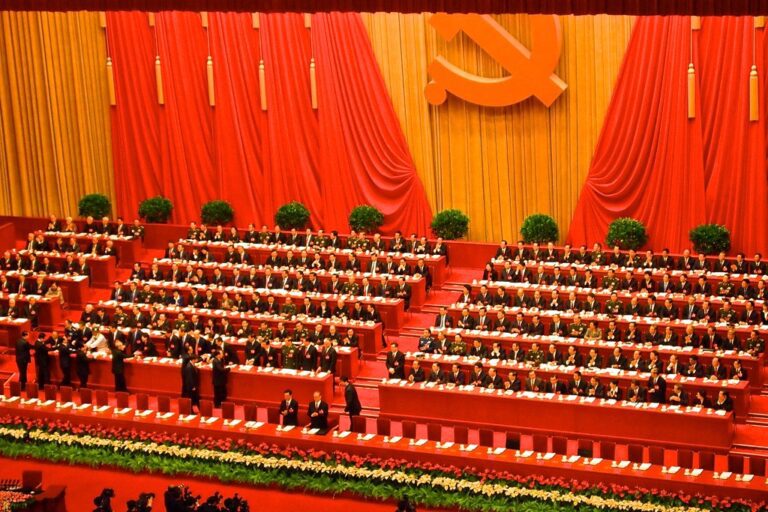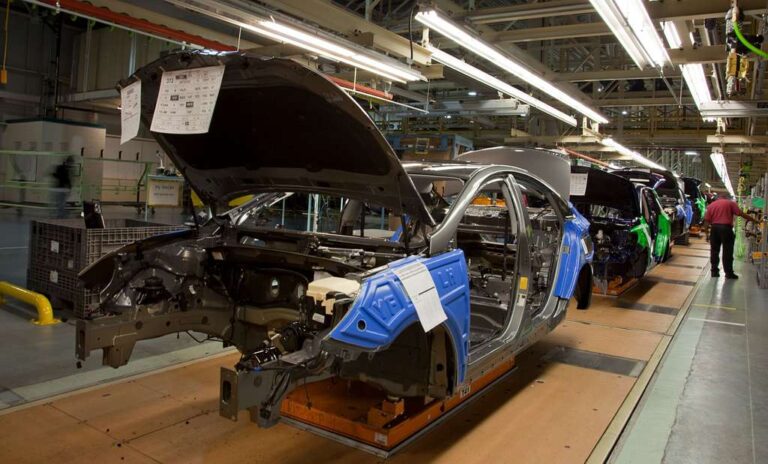
The following text is a summary of an invitation-only seminar organized by the Institute of Asian Studies (IAS) in Bratislava in April 2019, attended by the representatives of several ministries and state bodies, experts from universities and think-tanks as well as journalists. The summary presents an interpretation of the discussion from the perspective of the IAS, individual opinions are presented without being assigned to particular participants or represented institutions.
China has never been such a political and economic issue for Slovakia as it is today, and this trend will continue in the foreseeable future. It is also possible that it was China that „brought“ the US Secretary of State after 20 years to Slovakia in the beginning of 2019. In the recent months the Western world has been intensively debating about the Huawei company as well as scrutinizing the overall Chinese investments and their political and security implications.
The aim of the seminar was to discuss the following questions:
- What is Slovakia’s attitude regarding the EU foreign investment screening mechanism?
- What is Slovakia’s attitude regarding the Huawei company and their participation in the building of the 5G network in Slovakia?
- How should Slovakia deal with these and other issues related to China at an expert bureaucratic level?
EU foreign investment screening mechanism is designed to identify and prevent various risks pertaining to the member states. The regulation itself aims to report even smaller investments, so that it can be seen that whether an external actor is performing an activity that could jeopardize EU’s integrity. It is up to the Member States to monitor these investments and to implement this regulation into their own legislation, but it is also true that the member states will be obliged to inform the EU about individual investments and what measures they have taken. Nevertheless, the final decision to permit or block a given investment is in the exclusive competence of the states themselves.
Currently, about half of the EU countries have an investment control mechanism. Responses to Huawei and their participation in the 5G network differ across the EU. For example, UK, Germany and the Netherlands have a relatively neutral attitude. Here, the Netherlands does not exclude cooperation with Huawei, but thinks of a way to engage them without giving them exclusive monopoly over the 5G. The UK also wants to use Huawei in certain areas. Despite the US’s very sharp position, it seems that the approach of Western European countries will be accepting. For comparison, Hungary is strongly inclined to Huawei and does not see any problem in cooperation with them. It is also questionable whether and what steps the United States will take after proclaiming that they will carefully consider the exchange of information with alliance partners who will be using Huawei devices.
In addition to security and political issues, it is also necessary to realize the economic context. The full blockade of Huawei could have a very negative impact on the global economic system, which is already struggling today with the current US president’s policy and its use of protectionist tools – even against its NATO allies for example. At the same time, there is the understanding that 5G technologies bring extensive economic gains and along with it the associated power position.
Slovakia is still in the part of the EU that does not have the investment screening mechanism. Since in Slovakia, there is still an approach that we are trying to attract investitions, the need to introduce a safeguard mechanism is more of a novelty in thinking. Yet, despite it being a novelty in thinking, the relevant ministries are ready to carry out this activity.
There was a consensus in the plenary that the Slovak legislative and bureaucratic system is largely diversified in terms of who should assess security implications of investments and potentially related hybrid threats. Several ministries (including foreign, economy and finance) and other bodies (at government or security level) are addressing this issue, but it is questionable who will take the initiative and coordinate.
Slovakia has never seen China as its political or economic priority. One of the reasons is that China’s economic importance for Slovakia is limited – our exports to China represent about 1-2 percent of the total exports, while China has only invested small amounts of capital in our economy, even compared to other East Asian countries.
Slovakia, as a small country, wants to find such a foreign policy position that it would not damage its relations with key partners and important international players. Thus Slovakia is not interested in demonizing China, but at the same time does not want to be naive. The EU level is therefore the best option, for a small state like Slovakia (with a connection to Western Europe) to address major questions in relation to China. The specific area that is interesting for us – in relation to China – is to use the role of Slovakia as the transit country in terms of the trains connection between Europe and Asia thanks to our geographical location in the heart of Europe.
Currently, it is believed that even if it is necessary to decide on attitude towards Huawei, 5G and control of investment in the near future, Slovakia has not yet had to make such decisions and can still proceed with caution and without haste. On the other hand, however, it is appropriate to act on this issue, as by the end of 2019 Slovakia will have to make a decision on the selection of partners to build the 5G network and then start implementing the investment mechanism in 2020.
It seems plausible and at the same time appropriate that Slovakia will eventually choose the same path as the Western European countries, which should, with a foreign policy perspective, ensure smooth relations with the US while allowing some degree of appropriate cooperation with China as a growing power. At the same time, this solution will allow Huawei (or other Chinese companies such as ZTE) to participate in the 5G network, but these companies will be under increased control and regulation and will not have a monopoly position. A similar solution could strike a balance between economic incentives to use Chinese technology capabilities (which are in the area of 5G ahead of competition) while providing relevant policy-security control over critical infrastructure.
A certain shortcoming of Slovakia may be the aforementioned low level of political interest, when virtually no politician or political party deals with the issues discussed in the seminar and this summay. It is thus in Slovakia’s interest not to make last-minute decisions on these important issues without at least some prior discussion and control.
This event took place within the framework of project ChinfluenCE with the financial support of National Endowment for Democracy. The text was originally published at the Institute of Asian Studies.
Written by
Richard Q. Turcsányi
RQTurcsanyiRichard Q. Turcsányi is a Senior Researcher at Palacky University Olomouc, an Assistant Professor at Mendel University in Brno, and Program Director at the Central European Institute of Asian Studies (CEIAS) in Bratislava.
Rastislav Križan
Rastislav Križan is an intern at the Central European Institute of Asian Studies (CEIAS), Bratislava, Slovakia.

